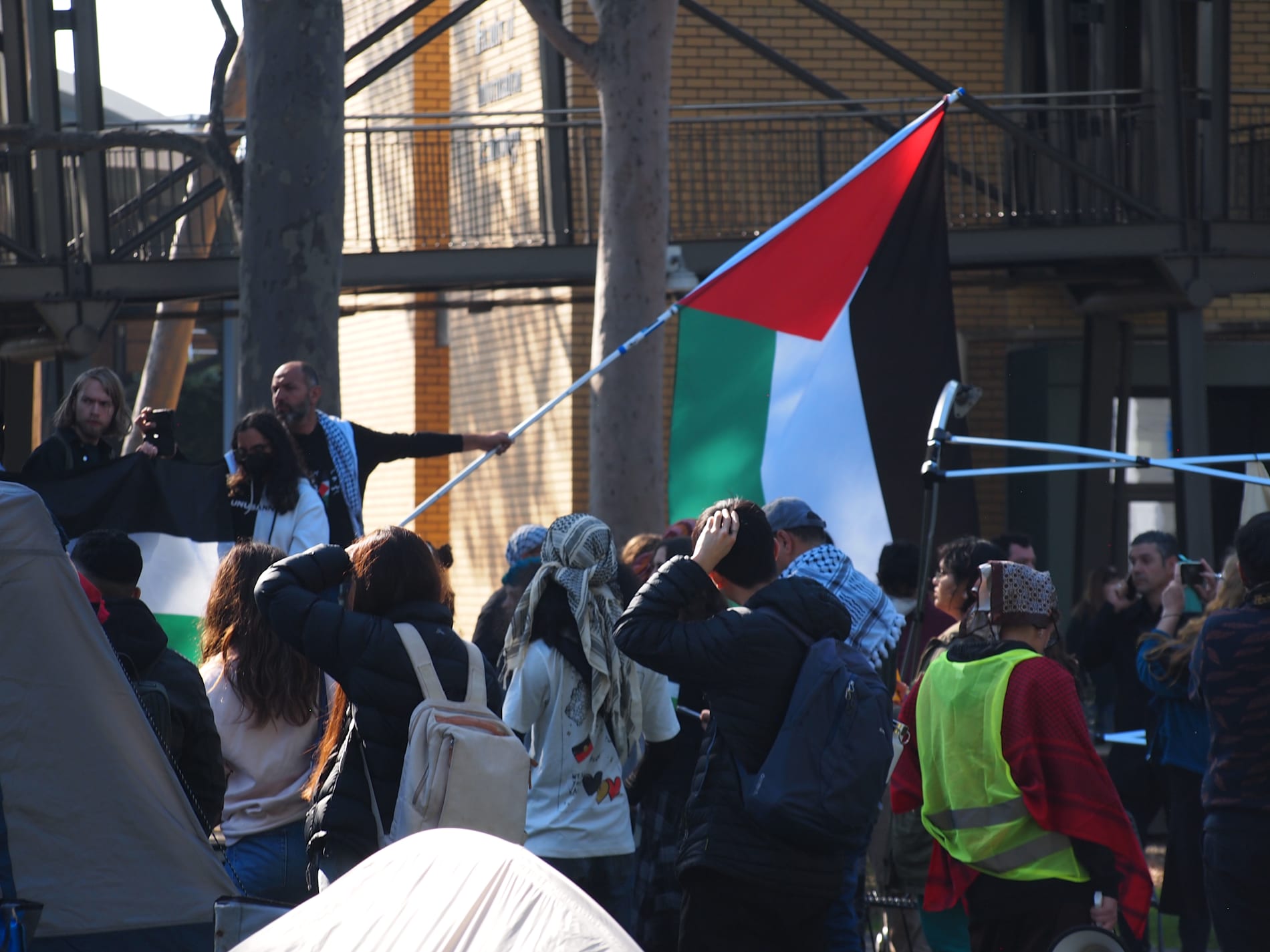
Read the Charter of Independence here.
Islamophobic incidents on Australian university campuses have seen an alarming 39-fold increase since the Israel-Gaza war erupted, according to data from the Islamophobia Register.
Despite this surge in reports, students and staff say Islamophobia remains under-acknowledged and largely unaddressed by universities.
Deputy Chair of the Islamophobia Register and Monash Senior Lecturer Dr Susan Carland said the reported incidents need to be taken seriously.
“They were not minor incidents, like someone giving a dirty look,” Carland said.
“[Reported] incidents ranged from verbal insults and threats to women having hijabs ripped off them and physical assaults leading to hospitalisation.”
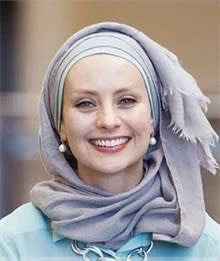
Monash student and member of Monash’s Arabic Society Rofida Arnaout said universities are failing to address the issue with the urgency it deserves.
“Islamophobia is not being taken seriously by politicians and universities,” Arnaout said.
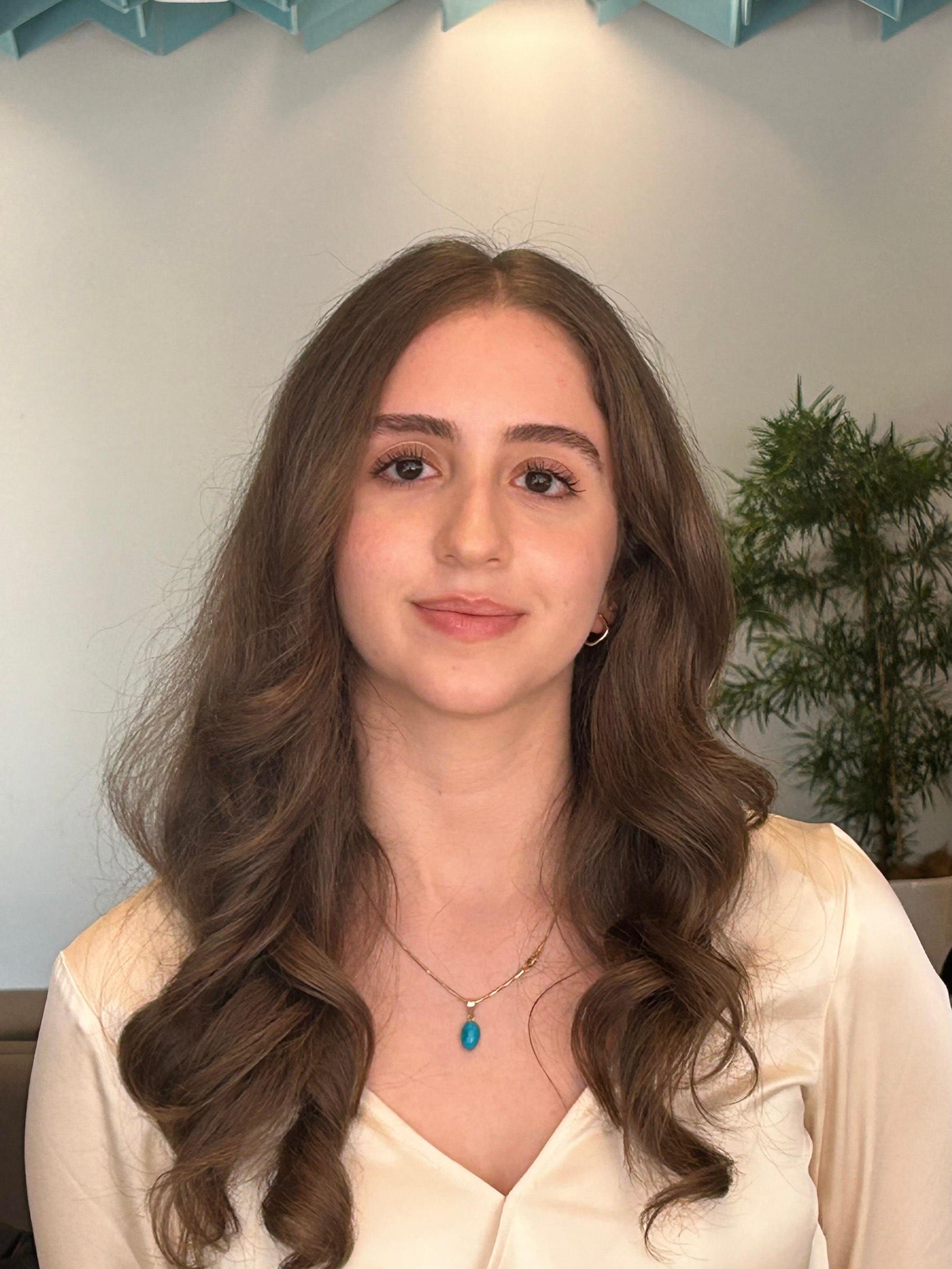
Shadow Minister for Education Sarah Henderson faced backlash for claiming that Islamophobia is ‘no issue’ on Australian university campuses in an interview with ABC News Breakfast.
Liberal Senator Dave Sharma was also heavily criticised for referring to Islamophobia as ‘fictitious’.
Carland said the statements made by the Liberal politicians were “incredibly troubling for students” and contributes to the normalisation of Islamophobia on campus.
“The damage that denying the existence of Islamophobia has to the community is profound and occurs only for partisan reasons because there is so much evidence to the contrary,” Carland said.
Arnaout said the under-recognition of Islamophobia has resulted in incidents on campus going unreported.
“The support services at Monash are not adequate enough. This definitely plays a huge role in underreporting,” she said.
“Why would we waste our time if it is not going to be taken seriously?”
It is a sentiment echoed by Aftab Malik, Australia’s special envoy to combat Islamophobia.
In a recent press conference, Malik said: “Islamophobia in Australia has been persistent, at times ignored and other times denied, but never fully addressed."
A 2020 study found that support for victims by third parties can alleviate the effect of Islamophobic incidents and reduce the likelihood of the perpetrator inflicting further abuse.
"People might see something bad happen and not know what to do or how to intervene. If we can develop programs that show people what to do in those situations that can really help improve bystander action,” Carland said.
Research also shows schools and universities can play a significant role in promoting bystander action to intervene against hate and discrimination.
Arnaout said bystander action must first be modelled by lecturers and tutors who must clearly condemn Islamophobic behaviour in class.
“The warnings before class that they do not tolerate any form discrimination is not enough,” she said.
“The behaviour needs to be called out when it occurs.”
The pro-Palestine university encampments were a key site where Islamophobic incidents took place at universities, according to a recent report released by the register.
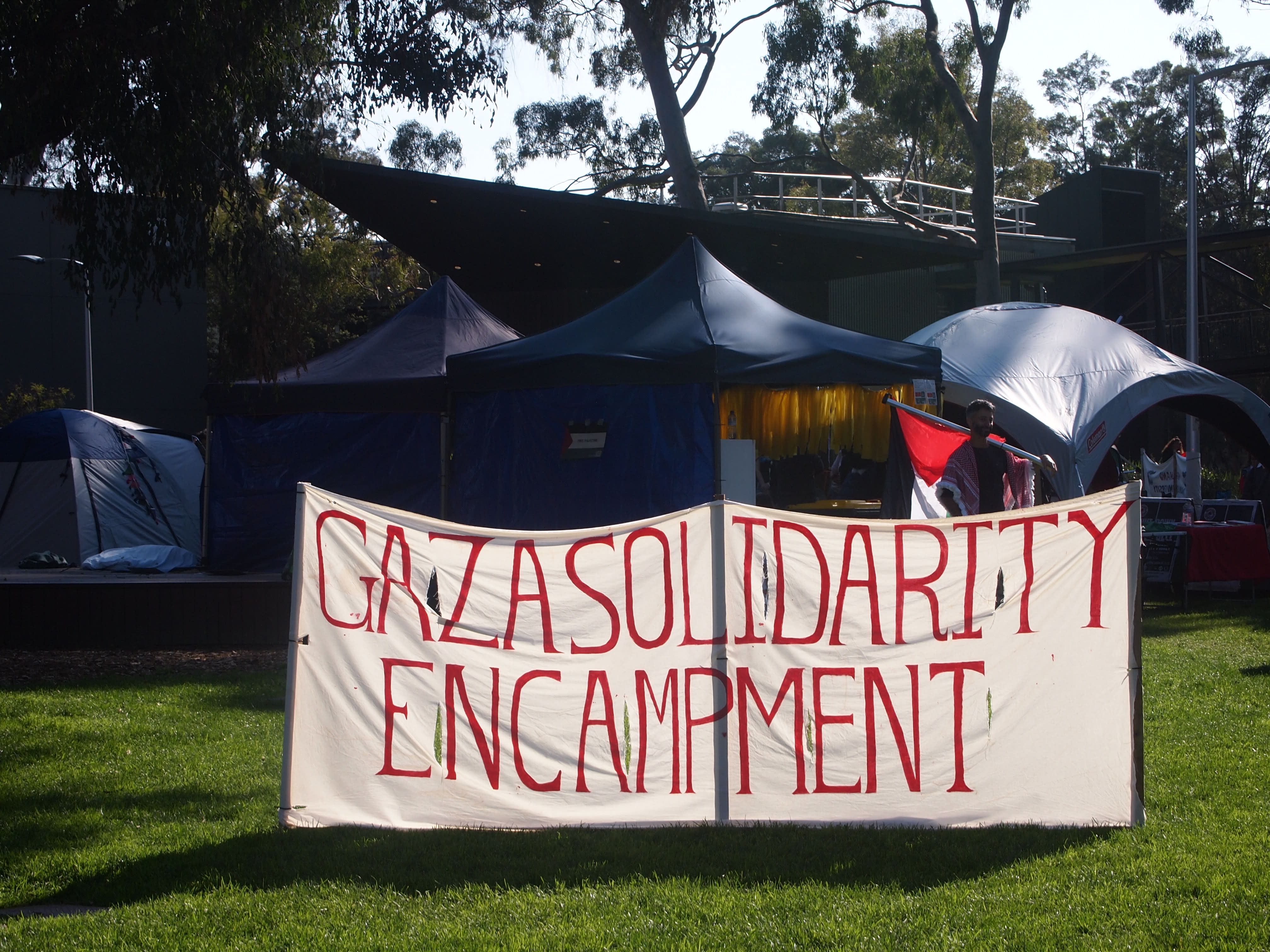
Carland said they found perpetrators were conflating anti-Muslim prejudice and anti-Palestinian hate, which is why they included anti-Palestinian racism in the report as well.
“One person said they were waving a Palestinian flag, and someone approached them saying ‘Muslims are all terrorists’ ... Perpetrators are running off the false belief that all Palestinians are Muslims,” she said.
A quarter of all the reported incidents of Islamophobia to the register in 2024 included victims displaying pro-Palestine symbols or protesting.
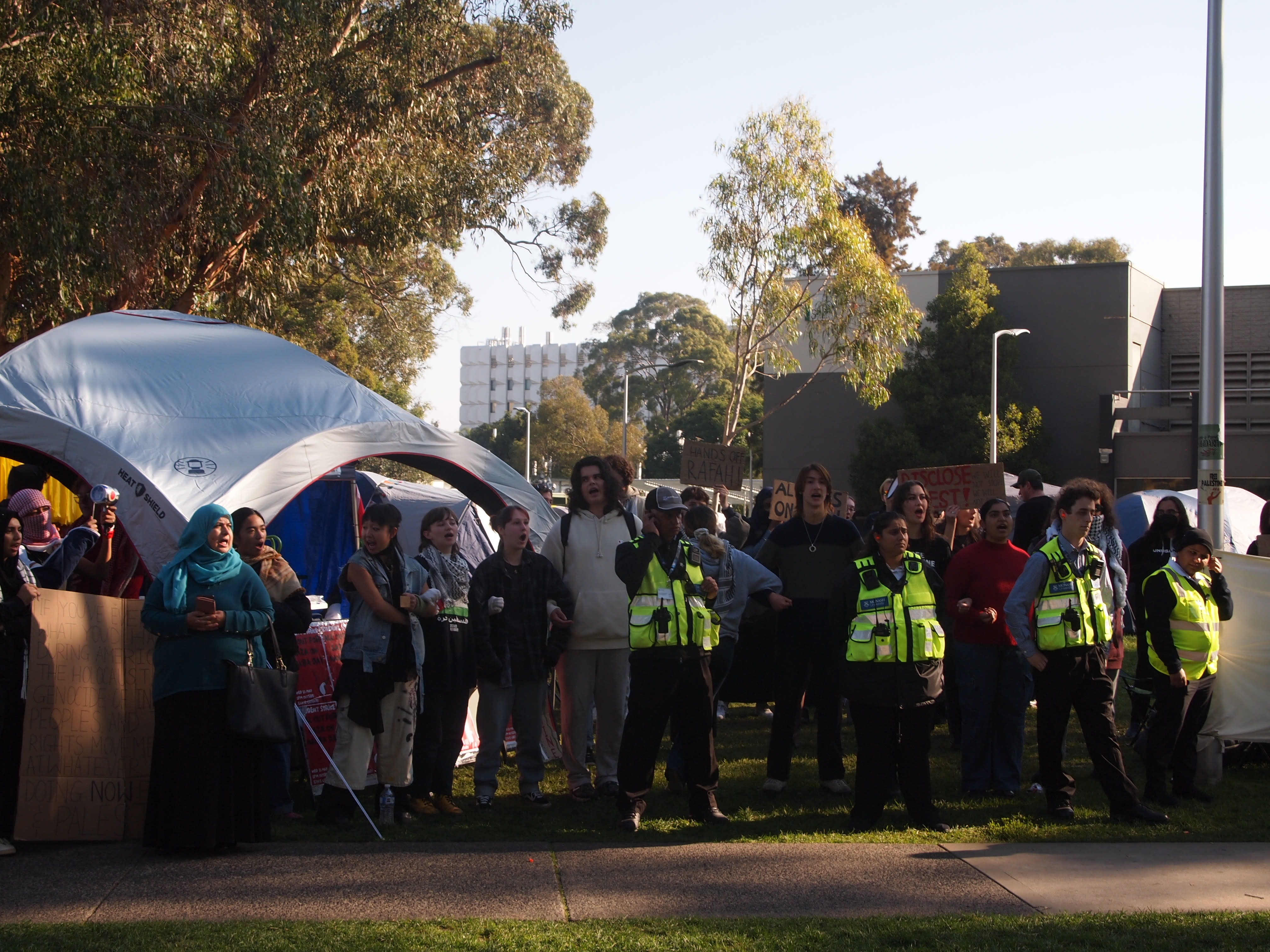
Arnaout said structural changes need to be made to the way lecturers and tutors discuss the Middle East in tutorials.
“There needs to be more culturally sensitive discussions about the Middle East that acknowledge the victims, the communities suffering and provide accurate context behind the war,” she said. “I have been in classes where lecturers refuse to say the word ‘Palestine’."
The new definition of antisemitism, endorsed by 39 universities, has been criticised by academics for posing risks to academic freedom and limiting the scope of what can be taught in the Middle East.
The Jewish Council of Australia, in a media statement, said the definition will have a “chilling effect on legitimate criticism of Israel and risks institutionalising anti-Palestine racism".
Arnaout said the conflation between antisemitism and support for Palestinian human rights exacerbates Islamophobia and anti-Palestine racism by inhibiting bystander action.
"Students, including Jewish students, are afraid to show solitary and stand up against Arab hate in the fear that they will be labelled antisemitic," she said.
Carland said looking at Islamophobia, anti-Palestinian racism and antisemitism as a shared challenge rather than a competition can help generate greater awareness.
"We need to move away from a zero-sum attitude towards antisemitism, Islamophobia and anti-Palestinian racism where we think to acknowledge if one exists, means we must pretend another doesn't exist,” she said.
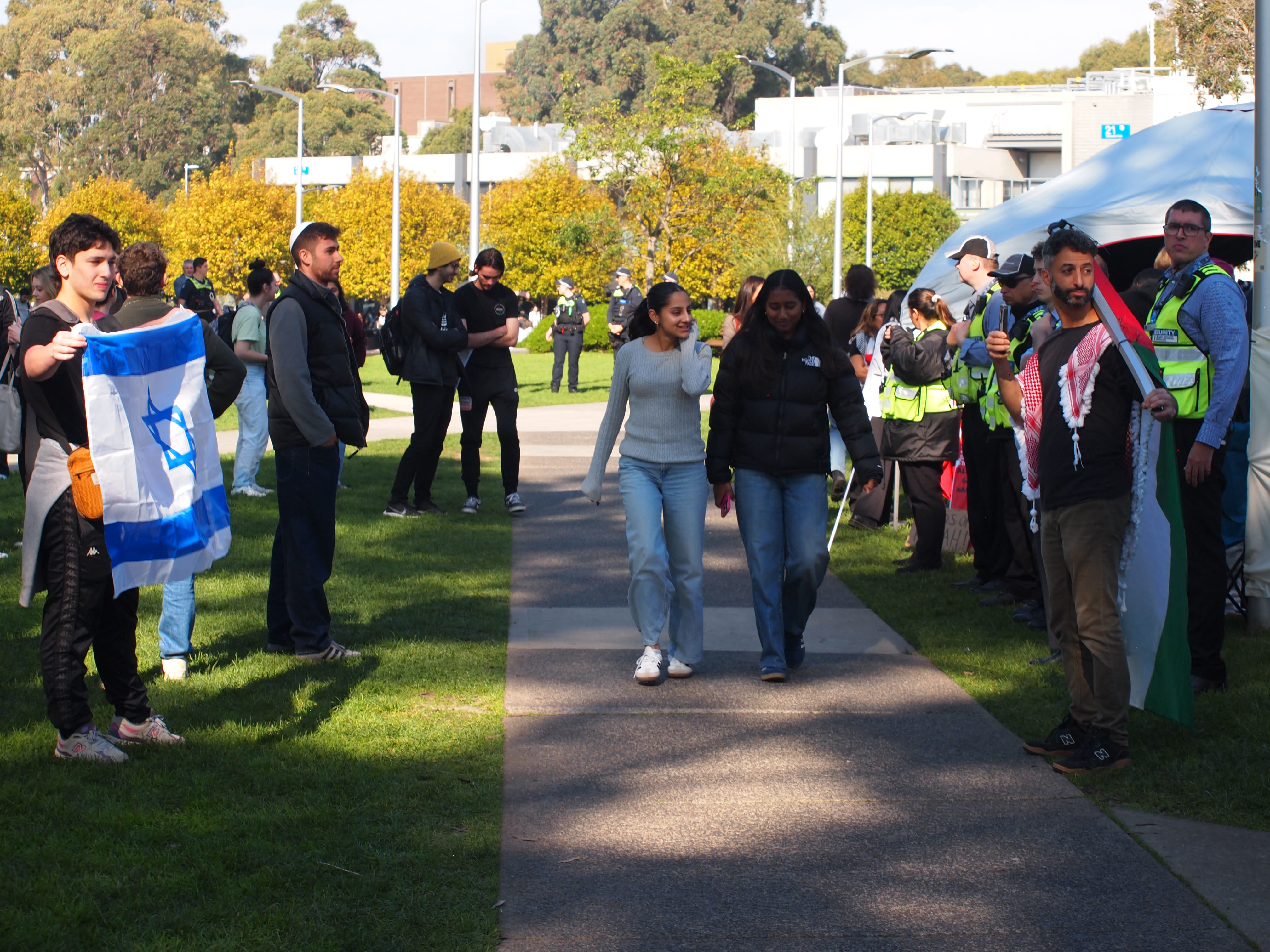
Alongside the Director of the Australian Centre for Jewish Civilisation, Associate Professor David Slucki, Carland is leading Monash’s Campus Cohesion research program.
This is the first major research program in Australia to examine the discrimination faced by Muslim, Arab, Palestinian and Jewish students concurrently.
Carland said the two-year program will develop practical, student-driven recommendations to present to the university.
“We are most interested in hearing about students’ experiences and the solutions they would like to see,” she said.
Arnaout said she hopes the program will provide a platform for students’ concerns to be heard and lead to meaningful action from the university.
Carland said the program will focus less on the intricacies of creating definitions and more on finding practical solutions based on student feedback.
"Evidence shows that when we get so caught up in trying to find a definition everyone agrees on, we don't end up doing the work of fighting discrimination,” she said.
“That said, if coming up with a definition for Islamophobia is important to students or students have concerns about the definition of antisemitism, we will raise that to the university."
Carland said she “hopes the program will change the temperature on campus” and make it a safer environment for all students.
"This is not just a Muslim, Palestinian or Jewish student issue; it is a risk to the social cohesion of universities and must be taken seriously."